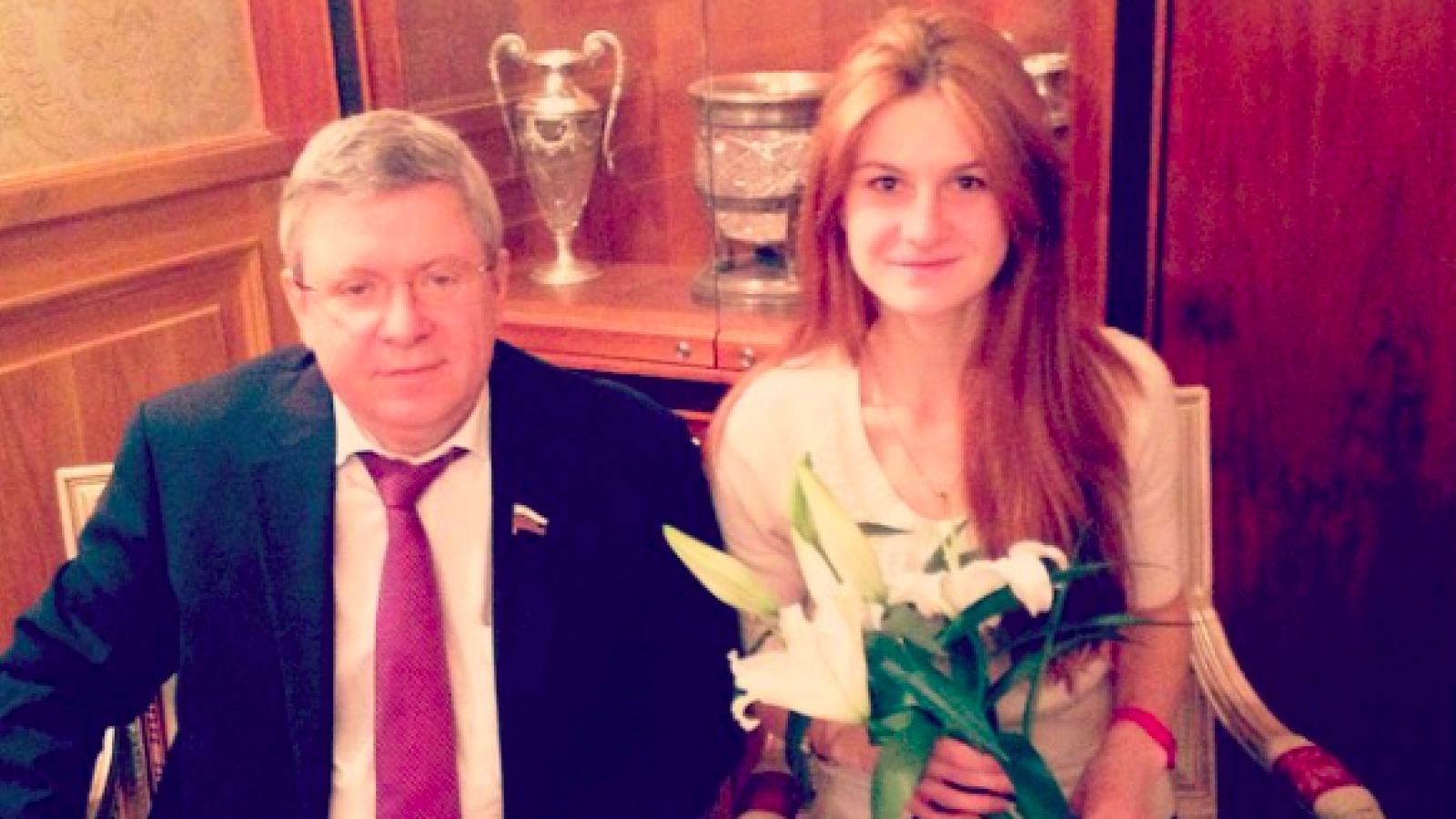
As we are learning more about Maria Butina, the 29-year-old woman accused of being a secret foreign agent, the Russian Foreign Ministry has launched a social media campaign on her behalf.
On Wednesday, Butina was jailed pending her trial, and in response the Russian Foreign Ministry asked supporters to participate in an online “flash mob” and show their support for Butina by changing their social media avatars to a photo of her.
The ministry changed its own Twitter photo to feature Butina, and then tweeted in English, "#NewProfilePic, #FreeMariaButina.”
(...)
Since arriving in the United States, Butina has advocated for gun rights and attended National Rifle Association conventions. At one NRA meeting, she spoke with President Trump's son, Donald Trump Jr. She has also managed to gain access to a number of political players, attending high-profile events such as the National Prayer Breakfast.
A review of old online posts shows Butina had trouble getting into the United States in 2014, only gaining a visa on her third try once she got connected to NRA leadership.
“Finally, the leadership of the NRA itself [came] to visit us, after which it was possible to prove that I would not stay in the US, and I went there on business,” Butina wrote at the time, referencing a trip to Moscow several months earlier by former NRA President David Keene; a prominent NRA booster and longtime Republican operative, Paul Erickson; and other gun rights luminaries.
Butina’s social media post shows that the U.S. government may have had concerns about her long before prosecutors formally accused her of acting as a foreign agent. That post, along with others reviewed by POLITICO, also offers a window into how Butina used her NRA ties to help establish her first inroads in the United States, where the Justice Department now alleges she waged a clandestine Kremlin “influence operation” to push an unnamed political party, which matches the description of the Republican Party, toward a more pro-Russia stance.
(...)
Butina did not say in her 2014 post whether NRA officials took any actions to help her overcome the U.S. government’s objections to her visa requests.
(...)
One person close to the investigation said it was likely that Butina’s formal role in NRA events helped her secure a visa to come to the U.S. for the 2014 conference.
CNN:
"I want you to go work with the US, not go on a tourist trip," a Russian oligarch who funded at least one of her trips told her, according to US prosecutors.
By the summer of 2016, Butina was settled in the United States on a long-term visa, making her way in US political circles during one of the most contentious elections in recent American history -- while allegedly working with the Russian government.
Prosecutors reportedly are interested in Butina's connection to former Russian ambassador Sergey Kislyak.
Photographs of Maria Butina with Sergey Kislyak were among the files taken from Butina’s electronic devices by FBI agents, according to prosecutors. The date of the photographs was not specified.
Erik Kenerson, the assistant US attorney, has cited Butina’s encounter with Kislyak as proof that she was in touch with diplomatic or consular officials and must be detained while awaiting trial.
“If Ms Butina decides to go to any sort of embassy, diplomatic mission, gets put in a diplomatic car that has been so registered with the department of state, there is nothing at that point anyone in law enforcement can do to get her,” Kenerson told a court in Washington on Wednesday.
(...)
The possibility that Kislyak played a role in Russia’s interference in US politics has been examined by the special counsel Robert Mueller and congressional committees, after it emerged that the envoy had contact with several senior Trump aides.
Michael Flynn resigned as Trump’s national security adviser in February last year after it was revealed that he discussed economic sanctions with Kislyak shortly before Trump’s inauguration. The following month, Jeff Sessions, the attorney general, recused himself from justice department inquiries into Russia after admitting he had failed to disclose two meetings with Kislyak during 2016.
In May last year it was reported that Kislyak had been heard by US spies telling Moscow that Jared Kushner, Trump’s son-in-law and a senior White House adviser, had proposed setting up a back channel for private conversations between Russian officials and Trump’s team during the final weeks of Barack Obama’s presidency.
The Russian accused of using sex, lies and guns to infiltrate US politics (CNN)
Accused Russian agent says she was twice denied visas to travel to U.S. (Politico)
Russian Foreign Ministry launches ‘Free Maria Butina’ campaign after alleged Russian agent is jailed (WaPo)
Accused spy Maria Butina met with Russia's former US ambassador (The Guardian)